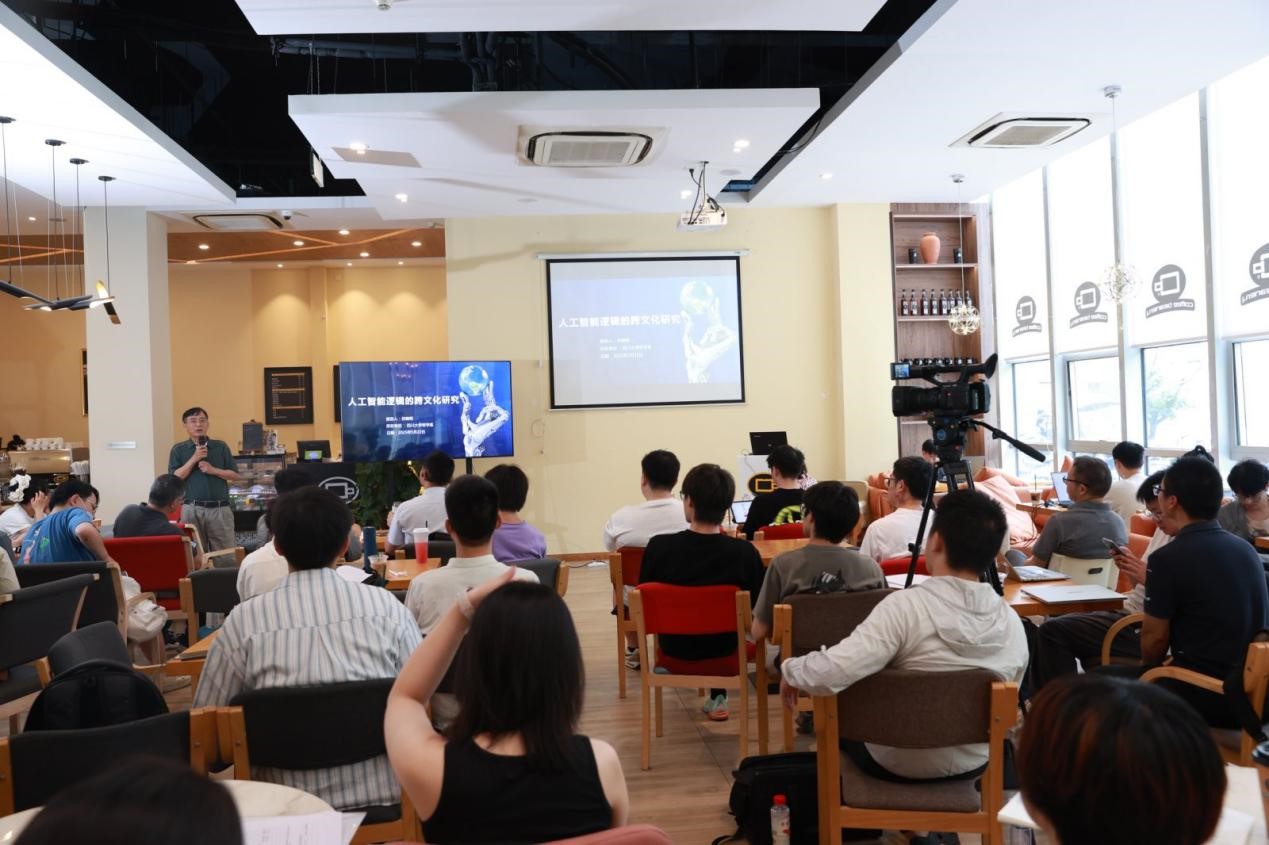On May 22, the Advanced Institute of Humanities and Social Sciences (AI-HSS) hosted the fifth “Humanities × Technology” Thinkers’ Forum. This forum, titled Cross-culture Study on the Computational Logic for Artificial Intelligence featured Professor Ren Xiaoming as the keynote speaker. Professor Ren is Professor at the School of Philosophy, Nankai University, Adjunct Research Fellow at the Logic Teaching and Research Program of the School of Philosophy, Nankai University, and the Institute of Logic and Cognition, Sun Yat-sen University. The forum was moderated by Professor Wan Xiaolong from the School of Marxism. About 50 students and faculty members from School of Marxism, School of Mathematical Sciences and other universities attended the forum.

Professor Wan extended a warm welcome and gratitude to Professor Ren for addressing the forum, and introduced his research experience as well as awarded achievements.
Professor Ren took "non-monotonic reasoning" and "uncertainty reasoning" as entry points to systematically sort out the theoretical divides and practical integration of artificial intelligence (AI) logic in Oriental and Western cultures. He pointed out that the deep learning model of AI is essentially a frequentist uncertainty reasoning, and its "convergence" has a deep fit with the dynamic correction concept of Oriental logic. Taking medical diagnosis and legal presumption as examples, Professor Ren explained how Eastern logic copes with complex situations through the method of elimination and dialectical thinking. He emphasized that the "integration of principle and application" thinking in Eastern civilization can not only supplement the limitations of Western logic in ethical decision-making and common-sense reasoning, but also provide philosophical inspiration for building cross-cultural intelligent systems.
In the interactive session, faculty and students from diverse academic backgrounds engaged in in-depth discussions on topics such as "the ontological roots of uncertainty" and "the technical dilemmas of ethical norms." Professor Ren stated that the "uncertainty" in AI is not only a technical challenge but also a philosophical opportunity. AI must explore the balance between logic and ethics on the basis of acknowledging such complexity. In the future, it is necessary to integrate cross-cultural perspectives into "value alignment" research to avoid cultural biases and ecological costs caused by technological path dependence.
Through an in-depth exploration of cross-cultural research on AI logic and Oriental logic, this forum has revealed the cultural depth and philosophical breadth of research in Computational Logic for AI. Attendees have gained a more comprehensive and profound understanding of AI development, providing " Oriental wisdom" as a problem-solving approach for global AI advancement. In this era of rapid technological progress, the dialogue between humanities and technology is becoming a key path for navigating uncertainty and leading ethical innovation.